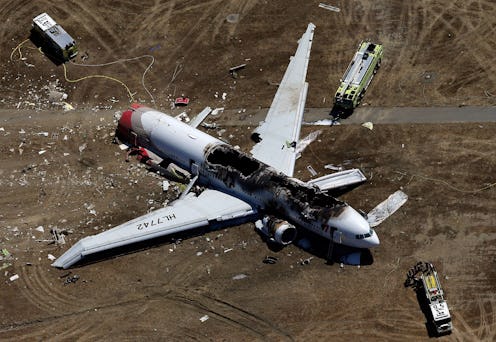News
Asiana Airlines Fined For Crash Response
In the first penalty of its kind, Asiana Airlines has been fined $500,000 for failing to properly reach out to families of the victims of Asiana Flight 214, which saw three dead and dozens injured after it struck a seawall while landing last July. It's the first time an airline has been penalized by the U.S. Department of Transportation for breaking the law in this way.
American laws require airlines to notify passengers' families of crises, and provide quick and full assistance. Asiana took a total of five days to contact the family members of all 291 passengers, and some had not been contacted two days after the July 6 crash, according to the AP.
Flight 214 was traveling from South Korea to San Francisco, and hit a seawall during its final approach to San Francisco International Airport. Many of the passengers were Chinese citizens, including dozens of teenagers traveling to San Francisco for a summer camp, three of whom were killed in the crash. Two died at the scene, and one passed away in hospital days later. Because many of the families were in South Korea and China, it took Asiana several days to contact them all.
In a statement, Transportation Secretary Anthony Foxx said: "The last thing families and passengers should have to worry about at such a stressful time is how to get information from their carrier."
An internal investigation had found that Asiana had taken two days to reach some of the families, and a full five days passed before Asiana was able to reach all of the families members of those involved in the crash.
Asiana has agreed to pay $400,000 in fines, and will also put $100,000 towards ensuing that the incident doesn't occur again. According to the Department of Transportation investigation, Asiana's employees tasked with contacting families weren't properly trained in crash response, and didn't have enough translators to meet requirements.
Legislation requiring airlines to provide assistance like this to families was passed by Congress in the 90s, after airlines faced criticism that they'd been ignoring families' requests for information after crashes.
